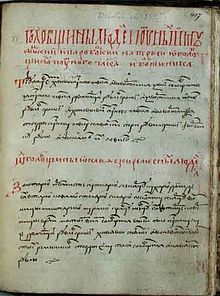Law of Lithuania
Lithuanian law is a part of the
legal system. The legal system of Lithuania is based onHistory

The origins of Lithuanian law trace back to the first written source, the
The legal system of independent Lithuania between the World Wars was influenced by the fact that three separate systems of civil law governed various parts of the country, while the autonomous Klaipėda Region had its own legal instruments. The notable difference from the rest of the state was the possibility of a secular
After regaining of independence in 1990, the largely modified Soviet legal codes were in force for about a decade. The modern Constitution of Lithuania was adopted on 25 October 1992. In 2001 the
Civil and commercial law
The civil law and
Legal science
Legal professionals are prepared and the law is researched in departments of three universities of Lithuania:
- Law Faculty of LL.D.;
- Law Faculty of LL.D.;
- Law School of LL.M.
Lawyers
International judges
- European Commission on Human Rights;
- Danutė Jočienė - the first female judge from Lithuania at the European Court of Human Rights and a Docent at Vilnius University;
- Pranas Kūris - a Judge at the European Court of Justice;
- Mykolas Romeris - a progenitor of the Lithuanian Constitutional law school, judge at the Hague Tribunal;
- Court of First Instance.
Prominent Lawyers in Lithuania
- Supreme Court of the Republic of Lithuania
- Constitutional Court of the Republic of Lithuania
- Valentinas Mikelėnas - a former Justice at the Supreme Court of Lithuania and a most prominent Lithuanian civil law scholar to date
- Vytautas Milius - Chairman of the Court of Appeal of Lithuania
- Stanisław Narutowicz - a signatory of the Act of Independence of Lithuania
- Artūras Paulauskas - a former Chairman of the Parliament of Lithuania
- Mykolas Sleževičius - a former Prime Minister of Lithuania
- Jokūbas Šernas - a signatory to the Act of Independence of Lithuania
- Minister of Justiceand Prime Minister of Lithuania
- Virgilijus Valančius - Chairman of the Supreme Administrative Court of the Republic of Lithuania
See also
- Legal systems of the world
 Law portal
Law portal Lithuania portal
Lithuania portal
External links
- The official database of legal acts of Lithuania - in the website of Seimas

